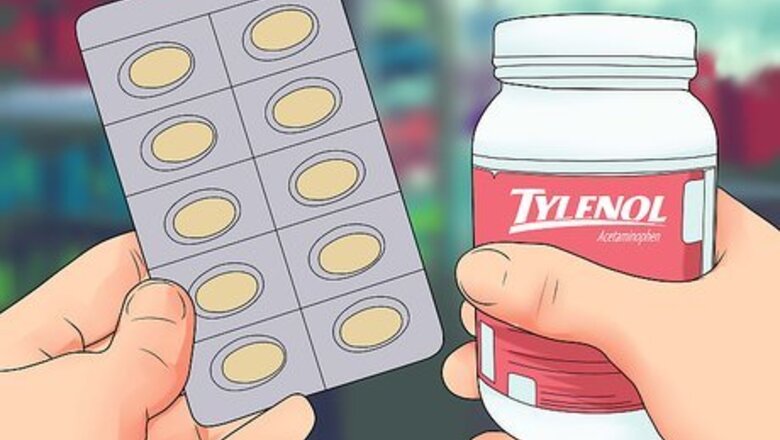
views
Using Medication
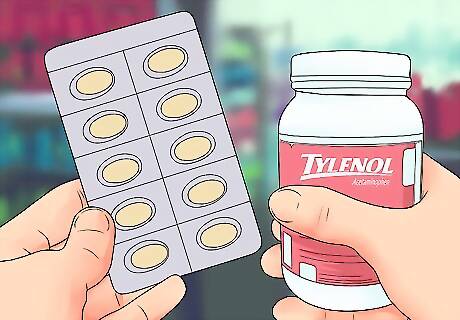
Try over the counter painkillers. A variety of over the counter pain medications sold at most drug or department stores may help diminish the symptoms of a child's headache. Acetaminophen (Tylenol) or ibuprofen (Advil and Motrin IB) work well in diminishing headaches and are safe for most children's use over the age of 6 months. If you want other options, you can talk to your pediatrician or pharmacist. Make sure you get a children's formula of any over the counter medications. Adult formulas can be dangerous to use on kids. Pain killers should typically be taken at the first sign of a headache. Follow instructions for dosage, making sure you're giving the child the recommended amount considering her age. While OTC meds can provide relief, they might cause rebound headaches if overused. This means your child will start experiencing headaches in response to the medication itself. OTC meds also tend to become less effective the more you use them.
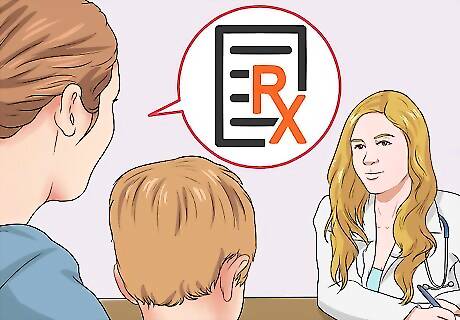
Seek prescription medication. If you child's headaches are recurrent, you might want to ask your pediatrician for a prescription. Migraines are typically treated with prescription medication. Migraines are recurrent and severe headaches. Triptans are generally prescribed for children over 6 years-old. The medication is very safe and has minimal side effects. Certain types of chronic headaches, including migraines, are accompanied by nausea. Your doctor might suggest medication to treat your child's nausea. Talk to your doctor about potential side effects of any medication and provide as much information as possible about your child and your family's medical history.
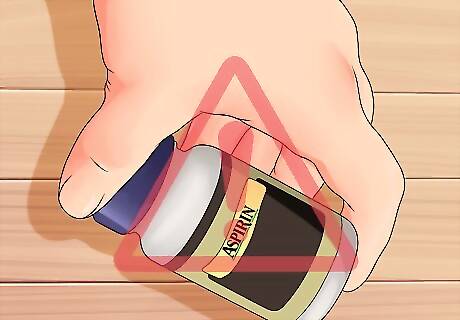
Be cautious with aspirin. Aspirin is generally safe for children over 2. However, in rare cases it can contribute to the development of Reye's syndrome and should therefore not be administered to children who have certain risk factors. Most doctors don't recommend using aspirin in children at all. Reye's syndrome causes swelling in the liver and the brain. It can lead to seizures and loss of consciousness. Swift treatment is important as Reye's syndrome can become fatal fast. If your child's headache is caused by a viral infection, such as the flu or chicken pox, aspirin is not recommended. Treating such conditions with aspirin increases the risk of Reye's syndrome. If your child has an underlying fatty acid oxidation disorder, this increases the risk of Reye's syndrome. You should not treat your child with Aspirin.
Trying Home Remedies
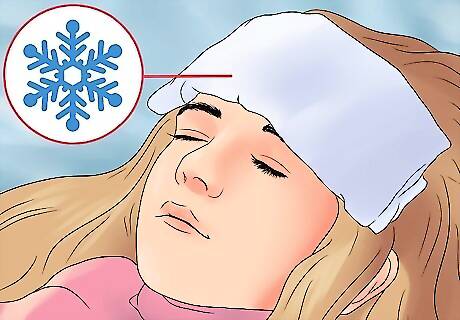
Use a cold compress. A cold compress might help soothe a child's pains in the event of a headache. Run a clean wash cloth under cold water and place it on your child's forehead. Have something on hand to keep the child entertained, such as music or television, so they lay still while wearing the compress.
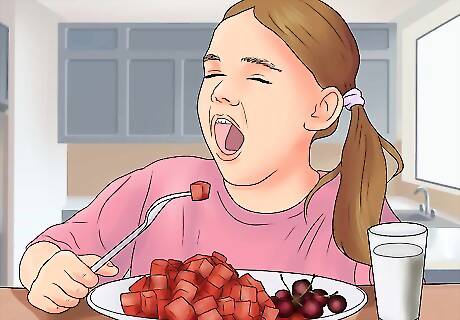
Give your child a healthy snack. As headaches are sometimes caused by blood sugar levels, giving your child a healthy snack when they begin to complain of a headache might help. Certain fruits and veggies have been known to reduce headache symptoms. Try giving your child a snack that contains spinach, watermelon, or cherries. Children often enjoy peanut butter, which has been shown to reduce symptoms of headaches. As milk also helps fight headache, you might try peanut butter on crackers with a glass of milk.
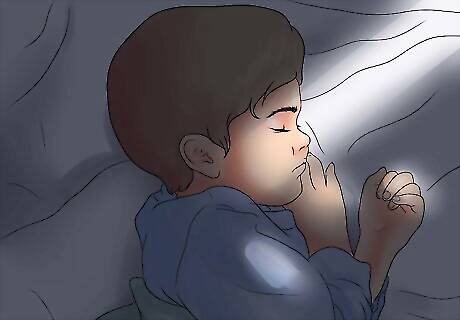
Practice rest and relaxation techniques. As headaches are often caused by inadequate sleep or stress, helping your child relax when a headache comes on can help. Encourage your child to sleep in a cool, dark room. Sometimes, headache symptoms improve with a nap. Relaxation techniques can help a child ease tensed muscles, which can modify pain and reduce the frequency of headaches. Have your child lie down and relax, stretch out all her muscles, and progressively relax different parts of her body. You could also encourage hot baths or showers to reduce stress. Make sure your child takes breaks from activities that trigger headaches, such as prolonged periods in front of the computer or TV screen.
Understanding when to Seek Medical Care
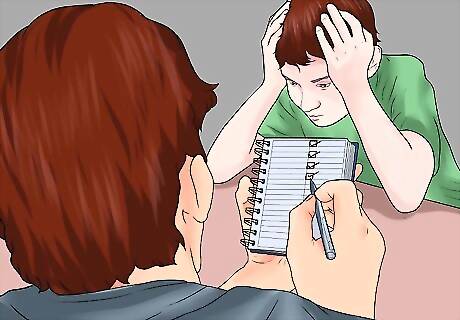
Keep track of the frequency of headaches. If your child seems to be experiencing headaches often, you should keep track of them. This way, if you need to seek medical care you'll have a detailed list of symptoms on hand. Know roughly when the headaches happened, how long they typically occur, and whether the headaches are of the same variety. There are different types of headaches, and treatment varies from type to type. Cluster headaches come in groups are accompanied by cold like symptoms. Migraines are often associated with vomiting and abdominal pain and sensitivity to light and sounds. Tension headaches often include pain in the neck and shoulders. Document all your child's symptoms to get a sense of which type of headache she's experiencing. Children, especially young children, often have trouble explaining their symptoms. Ask your child leading questions, like "Where does it hurt?" and "Can you point to where the pain is?"
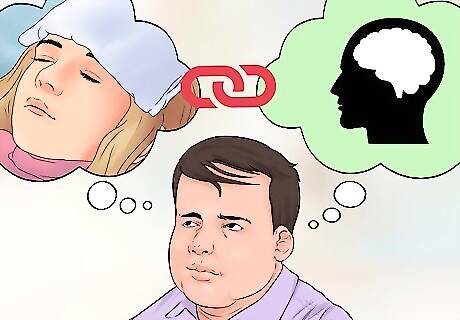
Understand the link between frequent headaches and mental health issues. Oftentimes, children complain of headaches or other ailments when experience of depression, anxiety, and other mental health issues. Children typically lack the vocabulary to explain mental health issues, and seek out comfort by complaining of physical ailments. A real headache in a child is easy to spot. A child suffering from a legitimate headache will generally be quiet and want to sit or lie down. They might fall asleep and will avoid exerting themselves in any way. Light and noise will bother them and they may experience stomach related issues, like nausea. If your child does not display typical symptoms of a headache but complains of them frequently, she may be having a mental health issue. Talk to your pediatrician about your concerns. Your doctor should be able to talk to your child about her emotional health in a manner she understand and can refer a therapist if necessary.
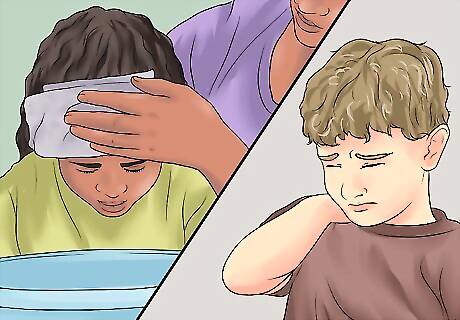
Familiarize yourself with worrisome symptoms. While headaches are typically not a sign of serious illness, you should watch for certain symptoms. Seek medical care if your child experiences any of the following: Headaches strong enough to wake a child from sleep Early morning vomiting, especially in the absence of other symptoms Personality changes Worsening headaches that increase in frequency Headaches that follow an injury Headaches accompanied by a stiff neck
Preventing Headaches
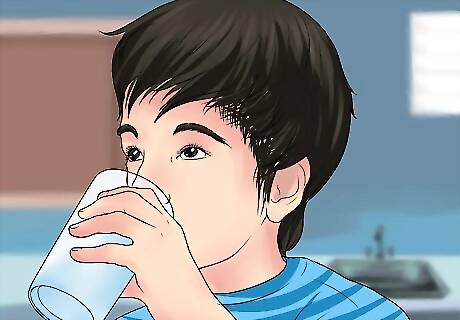
Give your child plenty of water. Dehydration can cause many symptoms, including recurrent headaches. In order to prevent headaches in your child, make sure she's getting adequate water throughout the day. A child should get roughly 4 eight ounce glasses of water each day. Your child might need more, however, if she is particularly physically active. Avoid caffeinated and sugary beverages. Not only will they discourage children from simply drinking water, they can dehydrate your child. Heavy sugar or caffeine intake have also been linked to headaches.
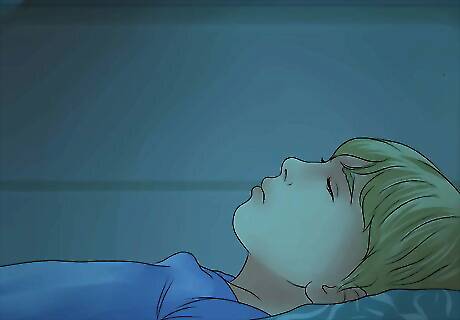
Make sure your child is getting enough sleep. Children need plenty of rest, which is why nap time is often an important part of a child's routine. Inadequate sleep can result in headaches. Depending on the age of your child, he will need different amounts of sleep each night. Toddlers and pre-schoolers need 11 to 13 hours of sleep. Children from ages 6 to 13 need 9 to 11 hours each night. Set a bed time for you child, if you do not already have one, and make sure she gets up around the same time each day.
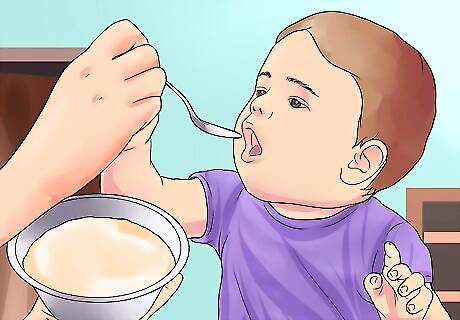
Feed your child balanced meals at regular times. Sometimes, hunger can trigger headaches. Make sure you do not wait too long between meals. Dips in blood sugar associated with missing meals can trigger headaches. Make sure your child eats breakfast before leaving for school. Children can be sometimes be stubborn about school lunches and discard unwanted items. If your child has been missing lunch, consider packing a lunch for her so you know she will eat. Children often go through phases where they do not want to eat, particularly in toddlerhood. Establishing a strict mealtime routine and prohibiting distractions like toys and TV during meal times can help encourage your child to eat. If you keep having problems, talk to your pediatrician to rule out underlying medical concerns. Provide nutritious snacks between meals, like fruit, whole wheat crackers, yogurt, cheese, and veggies.
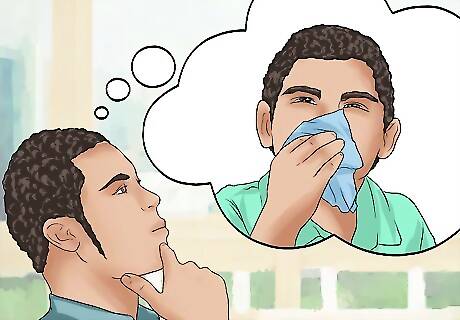
Understand the underlying cause of your child's headache. Common causes of headaches in children include: Allergies A sinus infection problems with their vision If they also have a sore throat and fever, it could also be a sign of step throat. You should see your doctor if you think your child’s headaches may be due to another condition




















Comments
0 comment